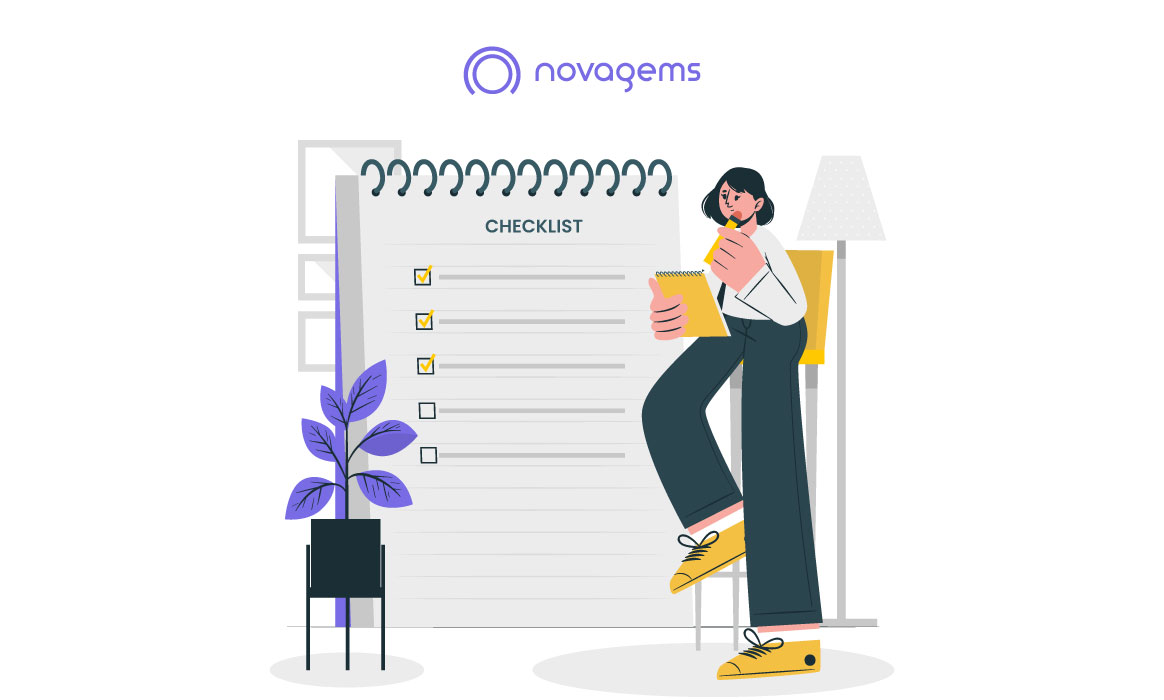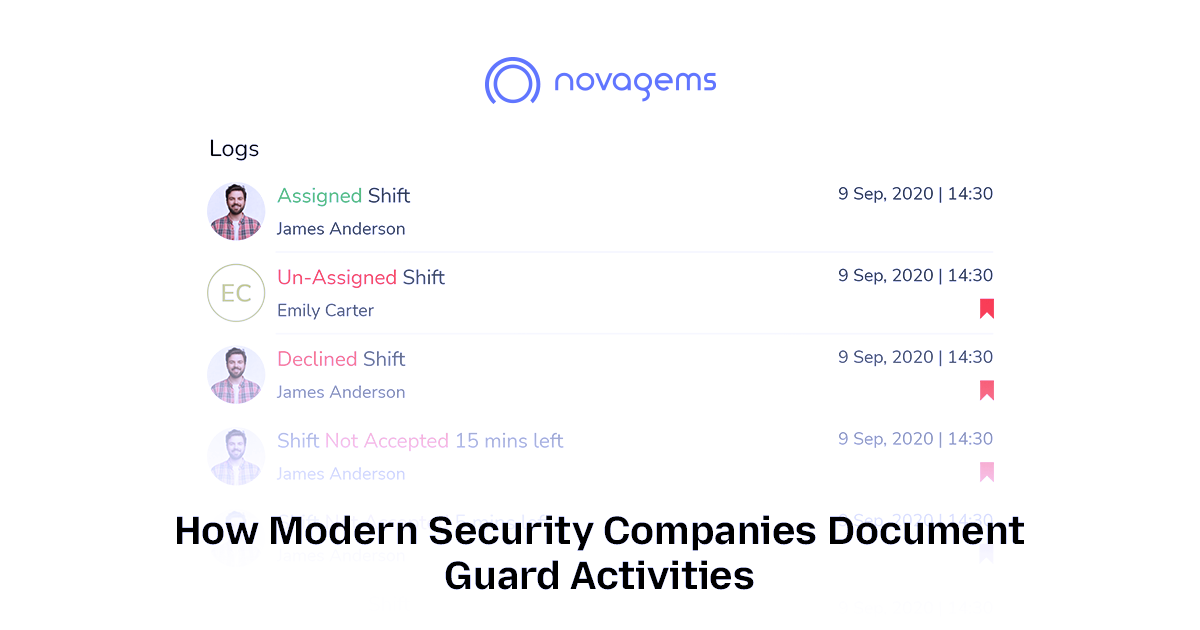Checklist Your Client Uses Before Giving You the Security Contract
Published on: Wed, Feb 15, 2023
Last updated: 2025-10-08
Read in 9 minutes

Key Takeaways
- Clients often evaluate security providers using a detailed checklist covering compliance, performance, financials, and technology.
- To win security contracts, you must prepare documentation, systems, and proof in advance.
- Demonstrating readiness in areas like guard tracking, reporting, and audits gives you a competitive edge.Many clients now expect digital tools (time tracking, patrol logs, incident reports) as part of service delivery.
Another name for this pattern is a contract checklist. When anyone hires professionals to secure their home or workplace, they look for the most efficient agencies. For that, they need to assure that they are relying on the right teams.
When you pitch for a security contract, the client isn’t just looking at your price. They’re scanning a checklist — consciously or unconsciously — to decide whether you’re credible, compliant, capable, and trustworthy.
Understanding what goes into that client checklist lets you prepare in advance rather than scrambling when questions come. Below is a comprehensive, up-to-date checklist your client might use — and how you should demonstrate that you meet those criteria.
So, what is the formula they use to ensure the same? Here are the pointers you need to check off from their list to be their favorite one:
What Clients Typically Check: The Security Contract Due Diligence Checklist
Here’s what many clients will scrutinize before awarding a security services contract:
1. Legal Compliance & Licensing
Clients will verify:
- That your company holds valid security licensing in their jurisdiction
- Proof of registration, business permits, and regulatory compliance
- Compliance with labor laws (minimum wages, benefits, working hours)
- That guard personnel have required certifications or licenses
You should be ready with scanned documents, up-to-date certificates, and compliance logs.
2. Insurance, Bonds, and Liability Coverage
A client may require:
- General liability insurance policy with minimum limits
- Worker’s compensation / employee injury insurance
- Bonding (where you guarantee performance)
- Proof that your coverage is current and sufficient
Clients often reject proposals lacking proof of appropriate insurance. Be ready to submit policy documents.
3. Financial Stability & Background Checks
Clients want assurance you’re not a fly-by-night operator:
- Financial statements or declarations (audits, balance sheet, turnover)
- Credit history or bank references
- Background checks (company owners, directors)
- Past audit reports or legal compliance history
When your financials are solid, clients trust you’ll fulfill commitments.
4. Staffing & Personnel Quality
They’ll examine:
- Guard screening / vetting (criminal record checks, identity verification)
- Training records and refresher programs
- Guard turnover rates (high turnover is a red flag)
- Supervisory structure and chain of command
- Uniform and grooming standards
High turnover signals instability; staffed firms with low attrition often stand out.
5. Technology, Reporting & Transparency
This is increasingly central:
- Ability to provide guard tour logs, GPS tracking, geofencing
- Digital incident reporting with timestamp, photos, evidence
- Real-time dashboards or client portals
- Audit trails, reporting frequency (daily, weekly, monthly)
- Proof that technology is actively used (screenshots, sample logs)
Many forward-thinking clients now include digital readiness in their checklist. If you already use software (such as that provided by Novagems or similar), highlight how it supports patrol tours, attendance, incidents, and reporting.
6. Performance Guarantees & KPIs
Clients may expect:
- Defined service levels (e.g. average response time, incident resolution time)
- Penalties or bonuses based on performance
- Service Level Agreements (SLAs) for uptime, guard availability, backup guard support
- Metrics like guard presence, incident prevention, client satisfaction
If you can commit to and track KPIs, you’ll appear more reliable.
7. Past Performance & References
Clients often ask for:
- Case studies of past contracts (especially similar scope / industry)
- Client references (contactable)
- Client satisfaction surveys or testimonials
- Records of quality audits and compliance checks
Providing credible references upfront speeds client trust.
8. Audit & Quality Assurance Processes
Clients like to see:
- Internal audit programs (site checks, supervisor inspections)
- Mystery audits or rated quality checks
- Documentation of corrective actions and continuous improvement
- Periodic review reports
This shows that you don’t just show up, but you monitor and improve over time.
9. Health, Safety & Emergency Preparedness
Because security work involves risk, clients may check:
- Safety policies, training, incident history
- Emergency response plans (fire, intrusion, medical)
- Guard first aid / CPR training
- Backup protocols or redundancy plans
Being proactive here portrays professionalism and reduces client risk.
10. Contract Terms, Flexibility & Limits
Clients scrutinize:
- Contract duration, renewal terms, termination clauses
- Escalation or price adjustment mechanisms (e.g. inflation, salary hikes)
- Force majeure clauses, liability caps
- Clear scope (which services included / excluded)
- Change request process, penalty clauses, demand for flexibility
How to Use This Checklist to Strengthen Your Bid
- Pre-document everything. Don’t wait till proposal time to gather licenses, insurance, financials, audit reports, training logs, etc.
- Highlight your tech credentials — if you use a system that logs guard tours or reports incidents digitally, show sample outputs.
- Use case studies / references — include them inline in your proposal, matching checklist items (e.g. “We met SLA 99.5% in Contract X, see appendix”).
- Map your response to the checklist. In your proposal, create a “Client Due Diligence Checklist” section and address each item.
- Offer transparency. Invite clients to audit or inspect records — this builds confidence.
- Be realistic in contract terms. Don’t overpromise on KPIs you can’t meet — leave buffer.
- Update your systems proactively — technology adoption is no longer optional; many clients expect it.
When clients check your technology readiness, they’ll often ask: “Do you have a system to log guard patrols, report incidents, and offer dashboards?”
At Novagems, we help companies implement such tools — but regardless of vendor, simply showing that you have live digital logs, GPS patrol tracking, incident timestamping, and a client-accessible dashboard will check many boxes in a client’s due diligence checklist.
Other valuable points to consider:
Experience in business
Security teams do not become efficient overnight. It is the types of different experience of security guards and the years in the business of the security company that counts.
To get on the radar of these clients, security companies must never forget to mention the years of their experience while bidding for jobs. They can also take it to their website or company profile to provide such information.
You can mention:
- The years of experience you have
- The kind of training you give and equipment your guards use
- Types of services you offer and your experience in them
- The type and number of patrolling vehicles you have
- The security guard management software you use to manage the workflow
So, this is one of the most crucial things that clients look for in a security business.
Affordability
Now, the idea of most clients is not to go for a cheap security company but to go with a rather affordable option. If your security company has offer prices higher than everyone else in the market, you are less likely to get the contract. However, this doesn’t mean you set your prices at the lowest.
Research the market and set competitive prices for your services. Besides, take into account the factors like your company’s market experience, additional benefits offered to the clients, the experience of professionals, etc.
Pricing Your Security Services
Labor Cost: Wages you are paying to your guards.
Material Cost: Money spent on equipment, vehicles, uniforms, etc.
Overhead Cost: Admin salaries, office rents, security guard software, etc.
Margin: 3-4% of total costs
Formula:
Total Cost (Labor + Material + Overhead) X 1.4 (3-4% Margin) = Hourly Rate
Professionalism
Are your guards professional? To make it to the shortlist of your clients, they need to be.
Clients look for professional security guards because professional employees exhibit quality services. So, make sure you have security guards with impressive skills and profiles. Hire security guards that are well-trained and experienced to deliver quality security services. They should know how to communicate well in every situation and should be friendly in general. No one likes rude security guards because it makes them unwelcoming to people who may need help.
Training and Discipline
Clients look for companies that have well-trained and disciplined guards. So, mention your positive points everywhere, to impress these clients. For example, if you have an ex-army man training or supervising your security guards, it will leave a good impression on your potential clients. If you have a gym for your guards, mention it.
So, make sure you have your ducks in a row to qualify for the contract checklist of your potential clients.
Quality Services
In the end, it all boils down to what kind of services a security company has to offer. Believe us, your potential clients are running every background check possible to hire the perfect security company for them. They will look up your website, reviews, social media, and whatnot.
When you deliver quality services, you have a good reputation in the market. So, that makes your first impression on the clients.
Team Management
In the next step, when your client is in talks with you, explain what type of guard management tools and techniques you use. You can mention the security guard software you use and how it makes your services top-notch. The features of such software and tools like GPS tracking, timesheets, clock-in/out, chat, etc. make work efficient for security companies. When you communicate it to the clients, there are good chances that they will be impressed.
All these factors show the quality of services your security company delivers.
So, these were some pointers that your clients are looking to check during their search for a security company. To leave the best first impression on your clients, pay heed to all these pointers and have your answers ready when they ask questions.
If you are looking for security guard software that can change the workflow and management game of your security company, contact Novagems.
Frequently Asked Questions
What exact documents do clients ask for before signing a security contract?
They typically ask for licenses, insurance certificates, financial statements, training & payroll records, audit logs, and references.
Is digital guard log / reporting technology mandatory?
Not always legally mandatory, but many clients now treat it as a de facto requirement — it shows accountability, transparency, and professionalism.
How far back do they check your past performance?
Often, clients look at 3–5 years of similar contracts, client testimonials, or audit reports depending on the contract size.
Can using technology like Novagems help me meet more checklist items?
Yes — software tools help track guard routes, log incidents digitally, automate reports, maintain audit trails, and provide dashboards to clients, which satisfies many client checklist criteria (transparency, reporting, compliance).
What happens if you can’t satisfy one of the checklist items?
You should address it openly. E.g., “We are in final stages of upgrading our audit protocol and will provide full reports from Month 3 onward.” Sometimes clients are flexible if you explain your improvement plan.
Get a Free Trial
Sign up For Newsletter
Latest Blog Posts
Get Started
Start being productive & grow your business
with Novagems





